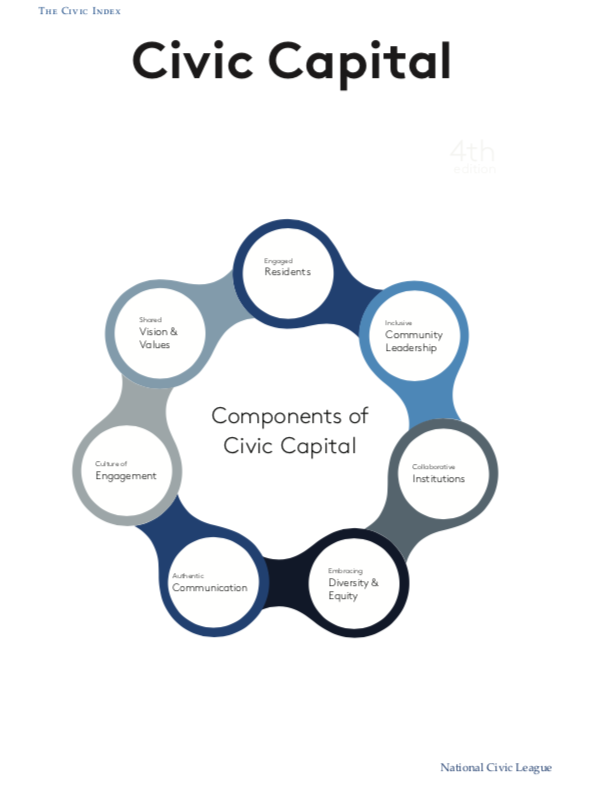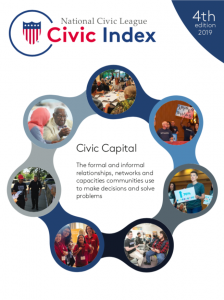
I am glad to highlight the release of the National Civic League’s Civic Index.
What makes some communities better able than others to solve the tough social, political, economic or physical challenges they face?
On-the-ground research revealed a set of factors that we call civic capital — the formal and informal relationships, networks and capacities that communities use to make decisions collaboratively and solve problems.
To help communities understand where they are on civic capital, the National Civic League (NCL) released the fourth edition of its Civic Index. It is a self-assessment tool consisting of a set of questions that provide a framework for discussing and measuring a community’s civic capital.

Among the Seven Components of Civic Capital, are:
- Engaged Residents: Residents play an active role in making decisions and civic affairs.
- Inclusive Community Leadership: The community actively cultivates and supports leaders from diverse backgrounds and with diverse perspectives
- Embracing Diversity and Equity: Communities with healthy civic capital recognize and celebrate their diversity. They strive for equity in services, support and engagement. and
- A Culture of Engagement: Involvement by residents, businesses, nonprofits and other stakeholders in every aspect of civic affairs should be part of local culture—an expectation, not an afterthought
The above is an excerpt from NCL President Doug Linkhart’s announcement of the new Civic Index. Click here to access a free copy of the Civic Index.